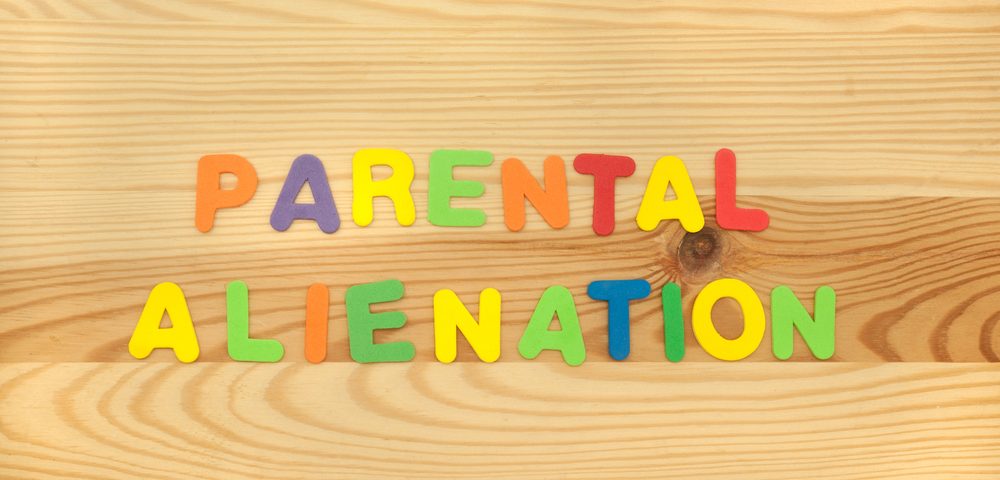
Forty Eight Months
May 2, 2018
The Substance Illusion
June 25, 2018“Parental alienation involves the “programming” of a child by one parent to denigrate the other, “targeted” parent.
This is an effort to undermine and interfere with the child’s relationship with that parent. This is often a sign of a parent’s inability to separate the couple’s conflict and focus on the needs of the child. For this reason this results in the child’s emotional rejection of the targeted parent. Also the loss of a capable and loving parent from the child’s life. Psychiatrist Richard Gardner developed the concept of “parental alienation syndrome” 20 years ago. Defining it as:
“…a disorder that arises primarily in the context of child custody disputes. Its primary manifestation is the child’s campaign of denigration against a parent, a campaign that has no justification. It results from the combination of a programming parent’s indoctrinations and the child’s own contributions to the vilification of the target parent.”
Children’s views of the targeted parent are exclusively negative, to the point that the parent is demonized and seen as evil.
As Amy Baker writes, parental alienation involves a set of strategies. Such as:
- bad-mouthing the other parent
- limiting contact
- erasing the other parent from the life and mind of the child
- forcing the child to reject the other parent
- creating the impression that the other parent is dangerous
- forcing the child to choose between the parents by means of threats of withdrawal of affection
- belittling and limiting contact with the extended family of the targeted parent.
In my own research on non-custodial parents who have become disengaged from their children’s lives (Kruk, 2011), most lost contact involuntarily. Constructive alternatives of reconnecting with their children were rarely available to these parents.
Parental alienation is more common than is often assumed.
Fidler and Bala (2010) report an increasing incidence and judicial findings of parental alienation. Their report estimates parental alienation in 11 to 15 percent of divorces involving children. In addition Bernet (2010) estimates that about 1 percent of children and adolescents in North America experience parental alienation.
There is consensus that alienation is abusive to children. Specifically child welfare and divorce practitioners are often unaware of its extent. As reported by adult children of divorce, the tactics of alienating parents are crucial to extreme psychological maltreatment. Such as spurning, terrorizing, isolating, corrupting, exploiting, and denying emotional responsiveness (Baker, 2010). For this reason for the child, parental alienation is a mental condition. Its based on a false belief that the alienated parent is dangerous and unworthy.

The severe effects of parental alienation on children are well-documented.
For example, low self-esteem, self-hatred, lack of trust, depression, substance abuse and other forms of addiction are widespread. Children lose the capacity to give and accept love from a parent. Self-hatred is the most disturbing. Children internalize the hatred toward the alienated parent. They are then led to believe that the alienated parent did not love or want them. Therefore experiencing guilt related to betraying the alienated parent. Depression is rooted in these feelings of being unloved by one of their parents. Similarly being denied the opportunity to mourn the loss of the parent or to talk about them.
Alienated children have conflicted or distant relationships with the alienating parent. Therefore they are at risk of becoming alienated from their own children. Half of adult children who had experienced alienation as children were alienated from their own children.
Parental Alienation Awareness of America
Daniel Dickinson~
Founder”
MASK the Parenting Magazine a quarterly publication providing solutions for Today’s Families.
The parenting manual offering solutions to the modern-day challenges families face. From Pre-K
through College stay up to date on the modern day issues families face.
Are you up to date on the issues your child is facing?
MASK Mothers Awareness on School-age Kids offers parenting solutions for today’s families. MASK tackles important topics – from drugs and alcohol to bullying and Internet safety -and gives students, parents and the community the knowledge and tools to manage these potential challenges.
Subscribe today! https://www.tools4teaching.com/product/mask-the-magazine/
Download and share the MASKmatters app now! Made for children, parents, teachers and in Spanish.
Have solutions at your fingertips
Available free on apple and google play links below
Apple https://apps.apple.com/us/app/maskmatters/id1482305692
Google Play
https://play.google.com/store/apps/details?id=com.maskmatters.maskmattersapp&hl=en_US&gl=US




